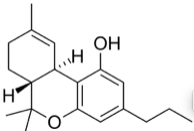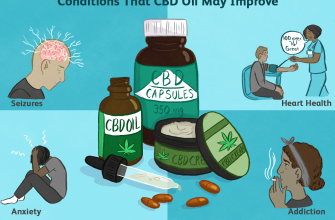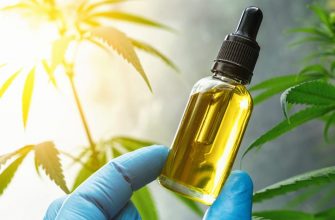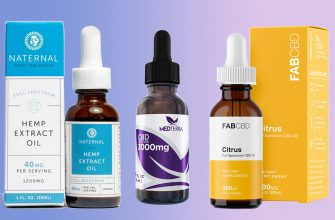The 80 compounds that are found only in hemp are known as cannabinoids. They interact with receptors in our body to cause effects in our nervous system and brain. Below is a brief overview of the 8 most important cannabinoids.
TGK
It is the most widely recognized and most commonly found cannabinoid in cannabis; it stands for delta-9-tetrahydrocanninol. This cannabinoid is responsible for the main psychoactive effect that occurs when using cannabis. It stimulates the parts of the brain that trigger the release of dopamine – creating a feeling of euphoria and well-being. THC also has an analgesic effect and relieves symptoms of pain and inflammation.
The list of THC health benefits is long, but here are a few to get us started:
Alzheimer’s disease
neuropathic pain
Multiple sclerosis
Parkinson’s disease
PTSD
Crayfish
Crohn’s disease

CBD
Cannabidiol, CBD for short, is the second most abundant cannabinoid in cannabis. It has already had a major impact on medicine and is a compound required by medical users. It is a non-psychoactive substance believed to reduce and regulate the effects of THC. Like THC, the list of medical benefits of this cannabinoid continues to grow. Unlike THC, CBD is not psychoactive. It is also already legal in more states than its more controversial counterpart.
After the mainstream media learned that CBD had medical value, a whirlwind of cannabis research emerged. Just to give you a quick recap, here are just a few things that CBD can help with:
Epilepsy
Crayfish
Depression
Anxiety
Psychotic disorders
chronic pain
Diabetes

CBN
Cannabinol, or CBN for short, is an analgesic that results from the breakdown of THC by oxidation. It is slightly psychoactive and is only found in small amounts on fresh cannabis plants. It can be minimized by storing harvested cannabis in a dark, dry place. The effects of THC tend to favor CBN – as CBN is not as potent as THC and can cause drowsiness at high concentrations. CBN has been found to have the following medicinal properties:
appetite stimulant
Researchers in the UK have found that CBN stimulates appetite in rats. During the testing period, the CBN-treated rats ate significantly more than the rats treated with the cannabinoids CBN and CBG.
Antibiotic
CBN was one of three cannabinoids identified by Italian researchers as being effective against antibiotic-resistant MRSA infections.
Potential drug for ALS patients
In a 2005 study, CBN was found to delay the onset of symptoms in mice that were genetically engineered to be a version of Lou Gehrig’s disease. Charcot’s disease (or Lou Gehrig’s disease) is also known as amyotrophic lateral sclerosis (ALS). These studies indicate that CBN may be effective in relieving symptoms in patients with degenerative, motor neuron diseases.
Painkiller
As early as 2002, researchers from Svidish discovered that cannabinol has strong pain-relieving effects. Interestingly, CBN and THC were the only cannabinoids that fought pain through the release of endorphins and the relaxation of tight blood vessels.
Anti-asthma
With strong anti-inflammatory properties, studies in 2003 showed that CBN stopped allergy-related asthma in mice. The cannabinoid achieved this by boosting the rodent’s immune system and reducing inflammation associated with an asthma attack.
sedatives
Berkeley-based Steep Hill Labs has stated that CBN may be the most calming of all cannabinoids. The Cannabis Research Lab has stated that a good dose of CBN is equivalent to 2.5-5mg of the pharmaceutical sedative diazepam. Diazepam is also known as Valium.
Potential drug for glaucoma
Along with THC, CBN is effective in reducing ocular pressure, which causes blindness in glaucoma patients. This ability of the cannabinoid to reduce ocular hypertension may also point medical professionals in the right direction when it comes to understanding the effects of cannabis on blood pressure in general.
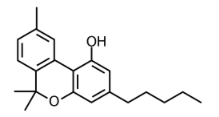
CBG
CBG, also known as cannabigerol, is the active ingredient in cannabis that is best known for its antibacterial properties. However, recent research has shown that while not very common in most cannabis species, cannabigerol is the “template” or “stem cell” for both THC and CBD. This means that both THC and CBD start out as CBG. CBG has also been found to inhibit GABA uptake, inducing the feeling of relaxation commonly associated with CBD. These results have led to new ongoing research into cannabinoids, which means it could have even more applications. The medical potential of CBG makes it a major research target these days. Here’s what the science says:
Cannabigerol was another of the cannabinoids tested for the MRSA virus in 2008. In terms of antibiotic properties, CBG was stronger than CBN and comparable to CBD. CBG is known to be antifungal. Research back in 1982 showed that isolated CBG is antimicrobial and kills various types of bacteria and fungi.
Possible treatment for psoriasis
This cannabinoid is just good for your skin. Not only does this help prevent redness in the skin, but it has been shown to have therapeutic potential for skin problems such as psoriasis.
Painkiller
Some studies report that CBG is a stronger pain reliever than THC.
Antitumor
Back in 1998, Korean researchers found that CBG was effective in slowing down the growth of cancer cells in the mouth. More recent studies published in the British Journal of Pharmacology have shown that CBG also has an antitumor effect in prostate cancer cells. The study focused on non-THC cannabinoids. While CBG did influence tumor growth, it was CBD that really shone as a potential treatment for prostate cancer.
Antidepressant and mood stabilizer
As early as 1975, researchers found that CBG prevents the absorption of amino acids that help regulate mood. This amino acid, GABA, was better regulated by CBG than either THC or CBD.
Further research has shown that CBG is a mild antidepressant that works to increase serotonin levels in your brain. The antidepressant effects of CBG were first discovered in 2006 by Richard Musti and Richard Dayo, who were conducted on laboratory rats.

DVT
Tetrahydrocannabivarin, or THCV for short, is considered a cannabinoid that reduces the intensity of the psychoactive effects of THC. Some studies indicate that DVT has about 20% of the psychoactive power as THC, but recent studies have shown that DVT actually mitigates some of the negative psychoactive effects of THC. Medical properties of DVT include:
Anticonvulsants
Researchers from Berkshire, UK, have tested the anti-epileptic properties of DVT in tests in rats. First, they tested whether DVT stopped activity-like uptake in brain slices. DVT reduced the number of convulsive “bursts” seen when brain segments were treated with the compound before convulsions were induced. They then tested whether cannabinoids stopped seizures in adult rats. They found that DVT significantly reduced the frequency of seizures.
Neuroprotective
If you’re familiar with smoking cannabis, then you know that you can slow down a bit after smoking a high THC strain. This is where TGV comes in handy. Smoking a high-DVT variety may help alleviate some of the short-term memory and speech impairments that go hand in hand with the “drunk” effect.
Promotes weight loss
There have been a few studies highlighting the appetite-suppressing effects of CBD, but a growing body of research is moving beyond the link to DVT and weight loss. A paper published last year by C4 Laboratories in Arizona found that DVT reduced body fat and increased energy metabolism in mice.
CBDv
CBDv is short for cannabidivarin. So far, not much research has been done on CBDv. But it looks very promising. CBDv is very similar to CBD, but it is a slightly degraded version of the cannabinoid. It changes the shape of the molecule in small but significant ways. Here are a few benefits that CBDv can provide:
Antiepileptic
UK GW Pharmaceuticals announced the issuance of a patent for CBD last year. The patent will allow GW Pharma to create an anti-epileptic drug based on CBDv. They are currently undergoing phase 2 trials for this drug.
This patent was obtained after a wave of research published back in 2012 and 2013. Two separate studies have isolated CBDv as a strong anticonvulsant drug. In the first study, published in 2012, the cannabinoid was found to stop seizures in mice and rats. The second study also looked at rats and confirmed the results of the first study. Research since 2014 has continued to confirm this information.
Antinausea
CBDv may also prove beneficial for patients with gastrointestinal conditions. The scientists found that nauseating behavior was significantly reduced in rats treated with both CBDv and THQv.
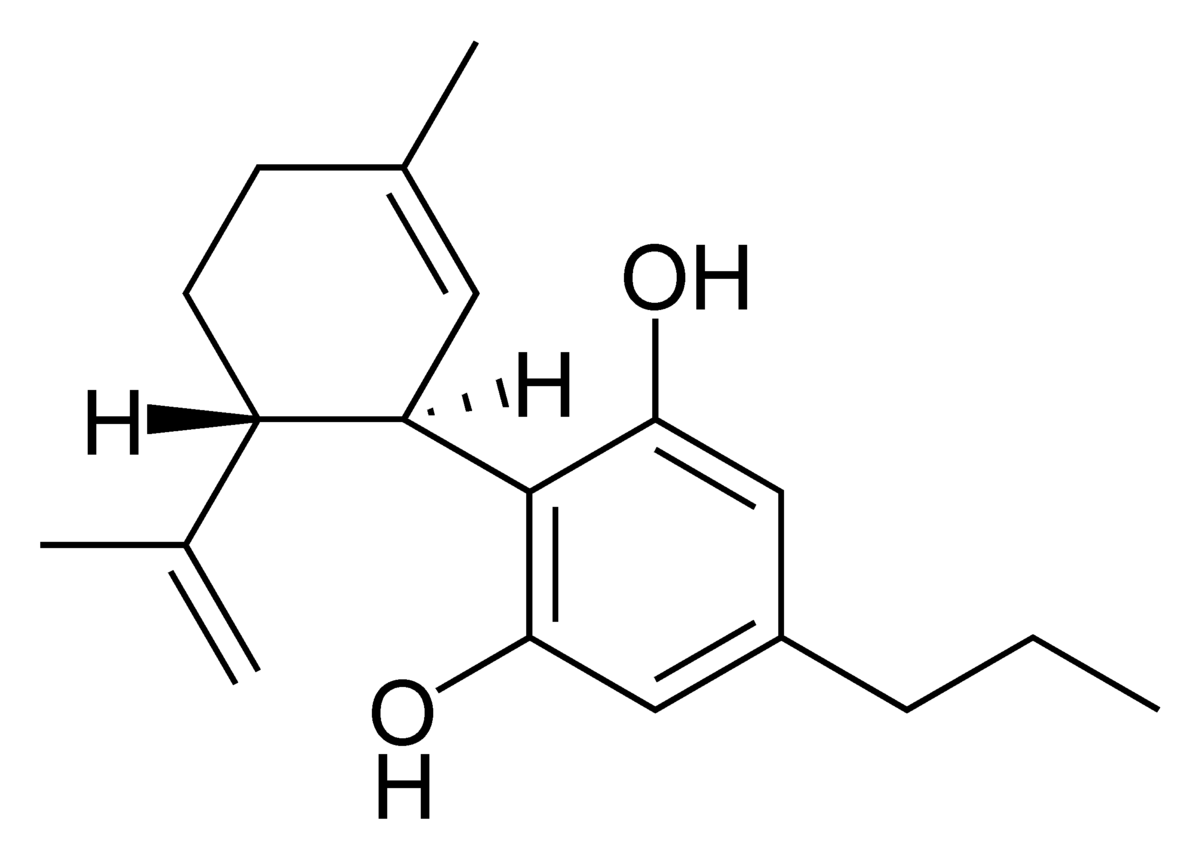
CBH
CBC or cannabichromene is believed to have anti-inflammatory and analgesic effects, although not much medical research has been done on the cannabinoid. Recent research suggests that it may play a potential role in brain cell growth. In some strains, it may even dominate CBD. Like CBD, cannabichromene is not psychoactive. Here are the effects you can expect from CBD:
Anti-inflammatory
CBC is effective in fighting inflammation on its own, but a 2010 study found it to be even more effective when combined with THC. This finding helps support the idea that cannabinoids work synergistically with each other. Although scientists have been able to find and isolate over 100 different compounds in the cannabis plant, the most powerful medicine is created when the different components work in harmony with each other.
Antitumor
Combined with THC and other cannabinoids, CBC has also shown some promise in the fight against breast cancer. The antitumor effects of CBC alone are not as exciting as the potential of CBD, THC, and CBG, but together they create one powerful tumor-fighting combination.
Antidepressant
In the scientific world, there is a sure way to test if a rodent is depressed. You grab him by the tail and watch how hard he tries to get away. The more he fights, the more the mood of the mouse rises. This test is known as the Tail Suspension Test (TST). Researchers at the University of Mississippi found that mice given CBC fought significantly more than mice given other cannabinoids.
Antifungal
In a review of the cannabinoid literature, author Ethan Russo reported that CBC has a slightly antifungal effect.
Supporting brain growth
A 2013 study found that CBC can help you grow new brain cells. Regardless of your age, cells in certain parts of your brain continue to grow through a process known as neurogenesis. The parts affected are responsible for memory and learning. You are at risk of contracting diseases such as Alzheimer’s when your brain stops developing new cells in these areas.
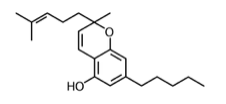
TGCc
THCa is the acidic form of THC. This is the raw state in which THC can be found on fresh cannabis plants. When hemp is heated, THCa is converted to THC. If it is in this raw form, THCa is not considered an active compound.
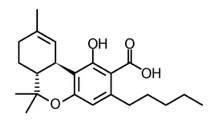
cbdc
Like THCA, CBD is the acidic form of CBD. It is now thought to have antimimetic (nausea) effects and help fight breast cancer. However, more research is needed on its medicinal products.
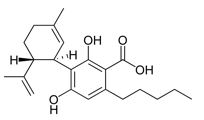
TGK-Delta (8)
The THC that many of us have come to know is called Delta(9)-THC. This version is slightly different. Delta (8) is less psychoactive than “regular” THC in adult plants. Some resources claim that Delta (8) may have neuroprotective and anti-anxiety properties, making it an interesting companion for the more notorious psychoactive Delta (9). However, more research is needed to confirm exactly how this substance works in the body. Here are a few additional benefits to look forward to with delta(8)-THC:
appetite stimulant
An experiment in mice showed that delta(8) increased the rodents’ appetite significantly more than delta(9).
Antinausea
Back in 1995, 8 children with cancer were treated with delta(8)-THC during a course of chemotherapy. The results of the study were actually a little strange. Although nausea and vomiting were reduced in all cases, delta(8)-THC also did not cause any psychoactive reactions in the children. Their age ranged from 2 to 13 years.
Dietary cannabinoids THCa and CBDa
THCa and CBDa are compounds found in hemp before it is decarboxylated or “decarbonized”. These cannabinoids are found in raw hemp and can be consumed as a dietary supplement or applied topically. As soon as you apply heat to these two acids, you turn them from acid into forms that are a little more broken down. In the case of THC, you are decarburizing to psychoactive THC. THCa is not psychoactive until you apply heat. According to his medical expertise, raw hemp has several properties as a dietary supplement, here are a few of them:
Anti-inflammatory
Antioxidant
Improved bowel function
Neural Function Improvements
Cancer and precancerous detection

